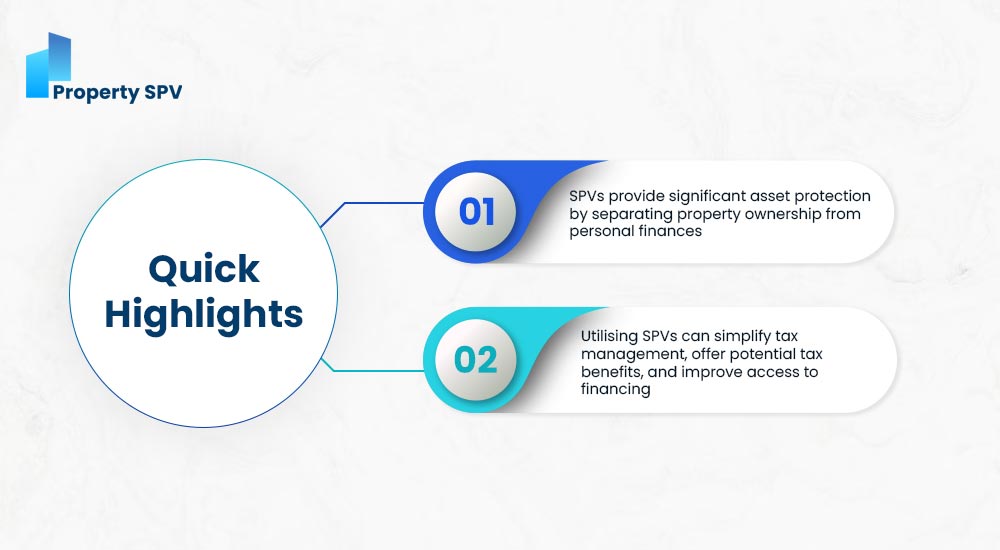How SPV Benefits Small Landlords
2 min
October 1, 2024
Chirag Majithia
.jpg&w=2048&q=100)
Discover how SPVs benefit small landlords by providing asset protection, simplifying tax management and improving access to financing for property investments.
The administration, property management, and protection of personal assets are only a few of the many challenges that small landlords face. SPVs, for this, can prove to be a potent solution to most of these problems providing landlords with several advantages to help them navigate through these complexities.
What is SPV?
SPV stands for Special Purpose Vehicle and is a separate legal entity that comes into being for a specific project or investment, say property ownership. In the case of small landlords, this means the property is owned by the SPV, rather than an individual, which brings protection both legally and financially.
Asset Protection and Risk Mitigation
Probably the biggest benefit of using an SPV to invest in property is asset protection. Because an SPV is a separate legal entity, it protects landlords' personal assets from risks of property ownership such as debt or liability ensuing from a lawsuit. In this regard, this separation ensures any claim against property involves only the SPV, without touching the landlord's personal finances.
Landlords decrease their personal vulnerability in respect of specific risks concerning property management by keeping liabilities within the SPV itself. This is especially helpful if one owns a number of properties. Each different property can be wrapped under a different SPV, and with the liability being contained within, helps limit the financial burdens.
Simplified Tax Management and Access to Financing
The SPVs could also facilitate the tax administration of small landlords in a much easier way. The operating income and the expenditures associated with the property are recorded in the SPV. This may also entail other tax benefits that basic ownership would not offer. It is also often the case that small landlords benefit from simpler tax filings and lower corporate rates.

Banks and financial institutions generally view SPVs more favourably than personal ownership when lending for investment property. Through SPVs, smaller landlords often have better financing, sometimes with lower interest rates, as the risk is contained within the entity and not the individual.
Flexibility in Property Ownership and Exit Strategies in SPV
The SPV allows flexibility in terms of ownership: introducing new investors or selling a property is far easier by selling shares in the SPV than by dealing with changes in ownership. This structure particularly serves the interests of a landlord desiring to scale up his portfolio or plan for an exit.
Conclusion
SPVs can offer extensive protection to small landlords, flexibility in finance, and possible tax benefits accruing from the same. From protection of personal assets to facilitation of easier tax management, use of SPV may be a good strategic call towards the success of long-term property investment.
Want to Know More?
Contact us for expert advice on property investment SPVs.
By using this website, you agree to the storing of cookies on your device to improve your experience on the website. See our Cookies Policy for more information.